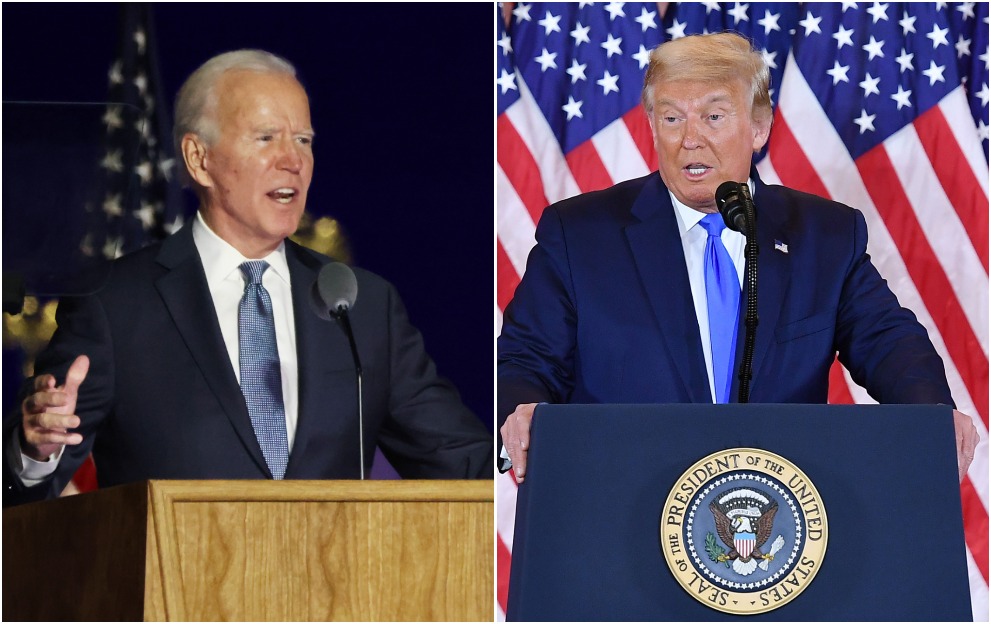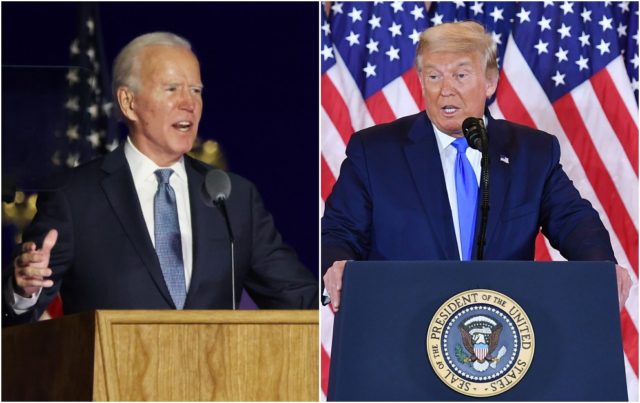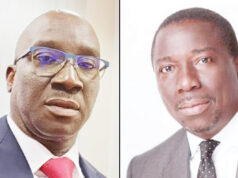
Amos ABBA, Icir
WITH the US presidential elections results due in a matter of a few days, countries around the world are monitoring the race closely as the outcome could mean different things to different nations.
President Donald Trump, though, perceived in some quarters as a polarizing figure, his brand of politics and foreign policies have favoured countries like Isreal and Sudan amongst others.
For Joe Biden, the Democratic Party hopeful, if he wins, his victory could usher in a breath of fresh air to several countries who are hoping for relief from the crippling sanctions by Trump administration.
However, based on the positions of both candidates during the Presidential debates, America’s foreign policies may not be significantly favourable to Nigeria.
On October 22, when Biden was asked if he would weaken the US oil industry to pursue a more environmentally friendly energy policy.
“I would transition away from the oil industry, yes. The oil industry pollutes, significantly…It has to be replaced by renewable energy over time,” Biden stated.
A Biden-win with a preference for a diversified energy option will certainly affect the fortune of Nigeria, a country that relies majorly on oil revenue.
However, President Trump’s administration has already seen an increased US oil production at its peak, lifting a 40-year ban placed on oil importation and stopped the imports of crude oil from Nigeria.
The energy policies of President Trump and Biden do not involve Nigeria in its scheme considering its preparation for a post-oil future.
Nigeria boasts of the world’s ninth-largest proven gas reserves but a potential Biden administration could settle on the possibility of deploying natural gas as a transition fuel to a low carbon emissions economy.
In January, President Trump expanded his administration’s travel ban to include Nigeria, along with five other countries its likely with a Trump win the immigration restrictions will still be in place.
The ban on Nigerian immigrants which took effect on Feb. 22, would not prevent travel by Nigerians coming to the US on student and employment visas.
A question most Nigerians have ahead of the US election is who will be most likely to rescind the US restrictions on immigration from Africa’s most populous nation.
According to a Gallup poll in July, despite the immigration ban placed on Nigeria by the US, a majority of Nigerians have a positive view of the U.S.’s leadership.
Though Biden is yet to pick interest in Nigeria from his position during the debates but apart from revoking the travel ban on Nigeria it is hard to know his stand on US interests in Nigeria.
Joe Keshi, a former Nigerian consul to the US who spoke on a breakfast programme on Arise TV said Nigeria’s interests will be largely represented if more American – Nigerians seek for elective positions in the US.
“The Democratic Party has a liberal-leaning towards countries where they have strategic interests but I have always advocated for Nigerian – Americans to seek elective positions in the US that is the only way we can retain Nigeria’s interests in the US,” he said.
Corroborating his stance, Pat Utomi, a Professor of Political Economy in an interview said today’s Nigeria would be marginal to U.S.’ strategic interests, except concerning terrorism and regional security interests.
He stated the scenario would change, “if the considerable number of Americans of Nigerian descent vote as a block, then they are consequential in affecting outcomes.”
In recent times, the US has consistently revealed that its protectionism policy of placing America’s interest first before other countries under President Trump has not put Nigeria’s interest in its crosshairs.
This has seen the US under President Trump opposed Adewunmi Adesina’s re-election bid as President of the Africa Development Bank, AfDB
Adesina’s re-election bid as President of the AfDB was threatened by the US request for an independent probe into whistleblower allegations levelled against him despite being absolved by the ethics committee of the bank’s board of governors.
The findings of the independent probe panel exonerated Adesina and cleared him for the elections which he won by a landslide victory.
In the build-up to the race to succeed Brazil’s Roberto Azevedo as Director-General of the World Trade Organisation, WTO took an unexpected turn last week after the US rejected Nigeria’s candidate, Ngozi Okonjo-Iweala.
Okonjo-Iweala has gathered support from most WTO member countries, but the US-supported her only opponent, South Korea’s Trade Minister Yoo Myung-hee, indicating her skills and experience in international trade dealings.
This shows that US policy under President Trump favours countries always entail enormous lobbying efforts built on goodwill.
President Trump’s trade policy of prioritising the US interests first has resulted in a low volume of trade between Africa and the US, which continues to diminish as the US also grows less reliant on Nigeria’s oil exports.
Mike Pompeo, US Secretary of State in a New York Times report stated its security ties between both nations, exemplified after the US sold 12 combat propeller planes worth $500 million to combat insecurity in Nigeria.
“Nigeria has room to grow in sharing important national security information. I am optimistic that’s going to happen,” Pompeo said.
The security ties between the US and Nigeria has been strained in recent times but it had improved significantly under the Trump administration.
In 2014, the Barack Obama administration had blocked a transfer of US-manufactured military helicopters from Israel to Nigeria due to human rights
concerns under former President Goodluck Jonathan.
US security cooperation with Nigeria improved after the 2015 inauguration of President Buhari, who pledged to investigate the abuses.
The Obama administration had sought congressional approval for the sale of 12 A-29 Super Tucano attack aircraft to Nigeria but stopped the sale after a Nigerian jet struck a camp for displaced people during a bombing raid.
The Trump administration had revisited that decision, and in late 2017 approved the sale, despite opposition from some members of Congress.
With the US elections result due in a few days, a Biden or Trump win does not guarantee any significant gain for Nigeria.







